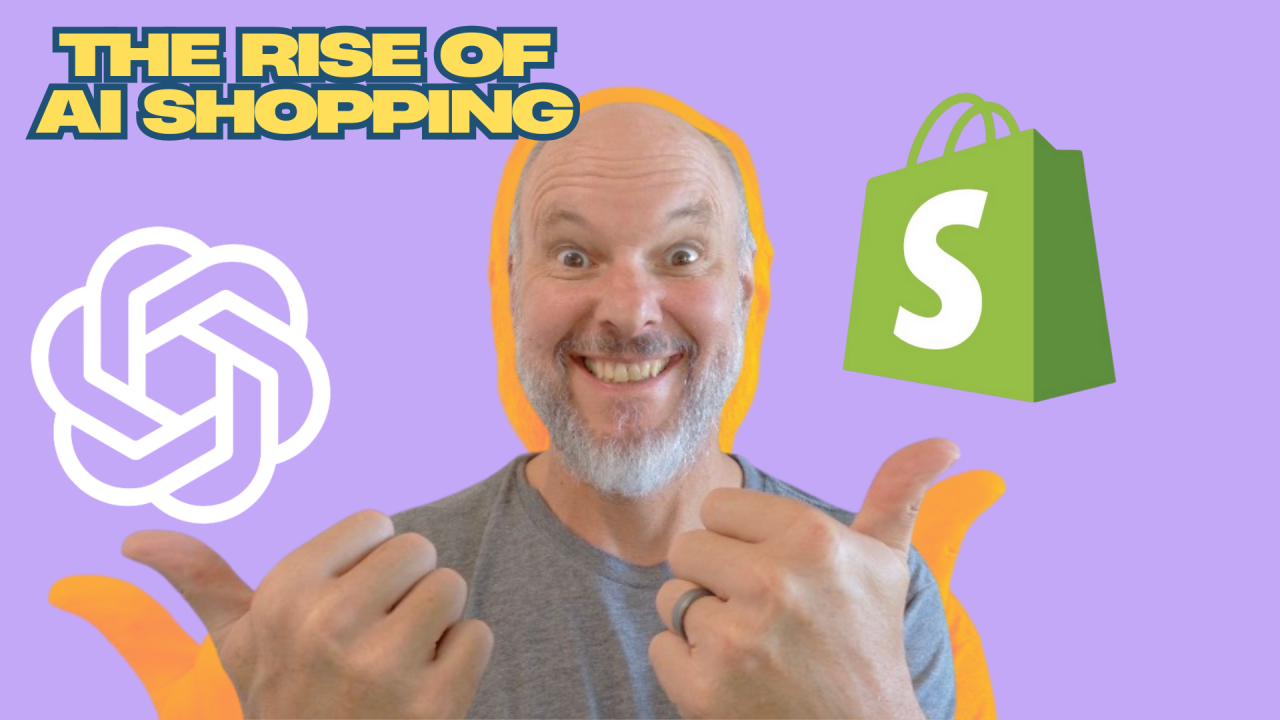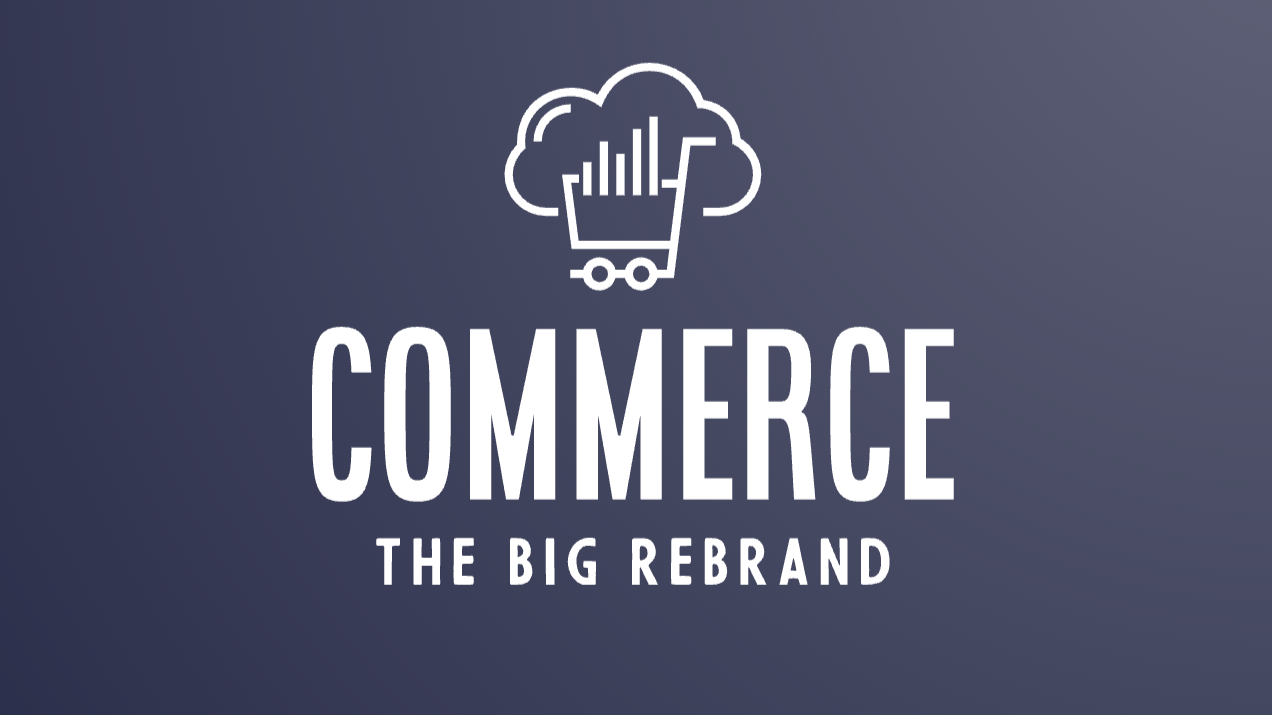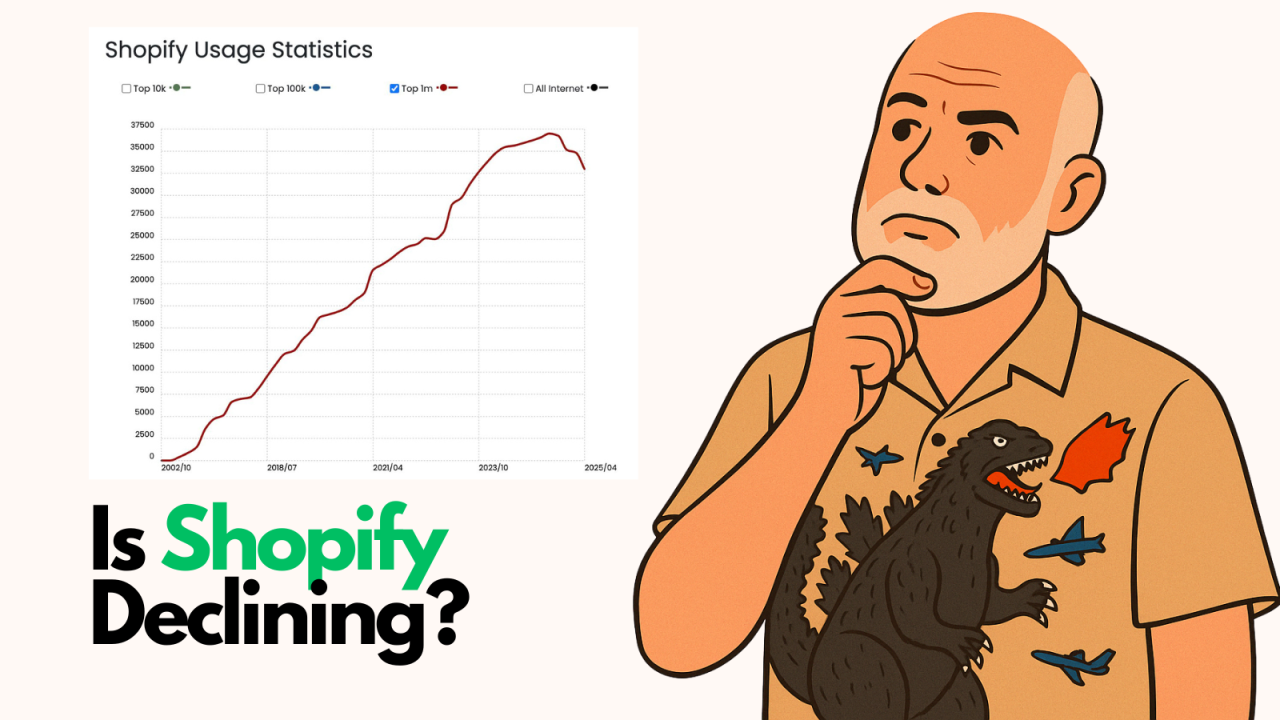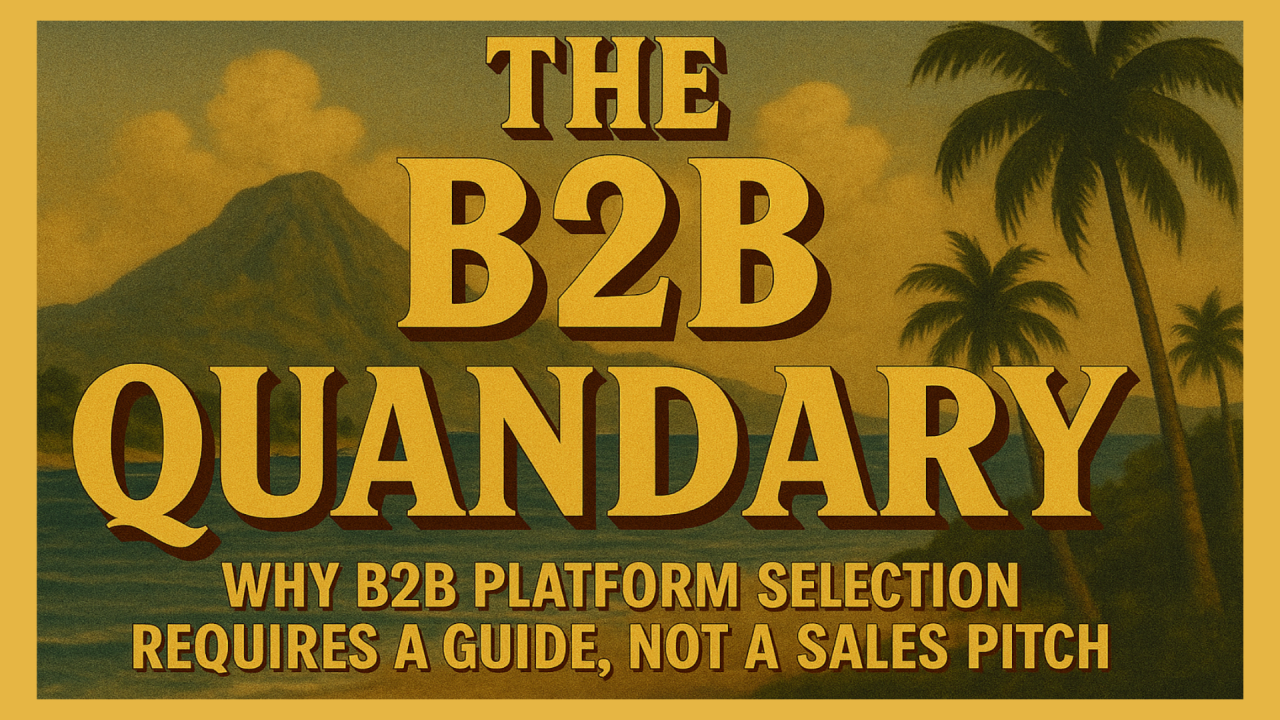
What Merchants Need to Know About OpenAI's Shopify Integration
Yesterday, I told a podcast audience that LLM Commerce would be here by year's end. Hours later, I discovered code strings in ChatGPT suggesting exactly that - OpenAI and Shopify appear to be building an in-chat shopping experience. Talk about timing. I'd love to claim some tech prophet status, but the truth is, the breadcrumbs have been there for anyone paying attention.
For months, we've watched AI companies and ecommerce platforms circling each other like awkward teenagers at a school dance. Microsoft made its move with Copilot's Merchant Program. Perplexity introduced "Buy with Pro." It was only a matter of time before OpenAI and some other platform paired up for the slow dance of conversational commerce.
What caught my eye wasn't just the integration itself, but the specific approach: hidden in ChatGPT's public code are strings like "shopify_checkout_url," "price," "shipping," and "buy_now" - all pointing to a seamless handoff from AI chat to Shopify checkout. This isn't some clunky affiliate marketing scheme with extra steps. It's the fusion of conversation and commerce that merchants have been anticipating (or dreading, depending who you ask).
But before we look at what this means for your business, let's unpack (do you have unpack yet?) what's actually happening and why it matters beyond the tech headlines and investor calls.
Behind the ChatGPT curtain, developers spotted something interesting in OpenAI's public code strings. Not buried deep in some test environment, but right there in production assets. The digital equivalent of finding blueprints for a spaceship taped to a lamppost.
These aren't vague hints. The code includes specific elements like "buy_now" buttons, price fields, shipping information displays, product ratings, and most tellingly, a "shopify_checkout_url" parameter. Translation: ChatGPT users will soon be able to discover products and complete purchases without leaving their conversation with the AI.

This isn't just another shopping bot. What's being built appears to be a direct handoff system - you chat about needing new running shoes, ChatGPT shows options with pricing and reviews, you click "buy," and you're seamlessly moved to a Shopify checkout experience. The entire product discovery journey happens in natural conversation, not through keyword searching or menu navigation.
For context, this follows Microsoft's April launch of the Copilot Merchant Program, which opened an in-chat storefront for qualified merchants. Perplexity got there even earlier with "Buy with Pro" last November. The difference? OpenAI's partnership with Shopify instantly connects ChatGPT to over a million merchants without requiring them to build custom integrations. No developer time. No new storefronts to manage. Just instant distribution through AI conversation.
The technical architecture suggests something important: this isn't just bolting on affiliate links. The integration appears to maintain session continuity and user context throughout the shopping experience. Your conversation about wanting ethically sourced coffee beans leads directly to relevant products from merchants who match those criteria.
We're witnessing the evolution of commerce interfaces - from physical stores, to websites, to marketplaces, to now AI-mediated conversations. For merchants, it's like suddenly having a tireless, infinitely knowledgeable sales associate for every single customer.
Why This Matters for Your Business
Shopify isn't just another ecommerce platform. It powers over a million merchants globally, from garage startups to billion-dollar brands. When Shopify makes a move, it shifts the ground beneath the entire retail landscape.
This OpenAI partnership creates a new distribution channel that bypasses traditional discovery entirely. No more battling for Google rankings or paying escalating social media ad costs. Suddenly, your products could appear directly in millions of daily ChatGPT conversations based on actual customer intent.
For small merchants especially, this is potentially game-changing. You're no longer fighting for visibility against retail giants with unlimited marketing budgets. If your product genuinely solves a problem a ChatGPT user is describing, you could land in front of them regardless of your SEO expertise or ad spend.
But distribution is just the beginning. Here's what else changes:
Customer acquisition costs might plummet. When shoppers find products through natural conversation rather than targeted ads, your marketing efficiency potentially improves dramatically. The users arriving at your checkout already understand your product because ChatGPT explained it to them in context.
The discovery-to-purchase timeline compresses. Today's typical shopping journey involves multiple sites, comparison tools, and review searches. Conversational commerce collapses this timeline into minutes or seconds. Impulse purchases become even more impulsive.
Data ownership becomes murkier. Who "owns" the customer relationship when purchases originate through AI? Is it your brand, Shopify, or OpenAI? Smart merchants will need strategies to convert these shoppers into direct, loyal customers beyond the first purchase.
Product information accuracy becomes critical. If your product descriptions, specifications and inventory data in Shopify aren't meticulously maintained, you risk ChatGPT misrepresenting what you sell. AI can only be as accurate as its data sources.
New success metrics emerge. Traditional conversion metrics might not apply in this new landscape. Instead, "conversation quality," "AI discoverability," and "contextual relevance" could become the new SEO.
For Shopify, this partnership is strategically brilliant. While many merchants have invested heavily in custom storefronts, the reality is that consumers increasingly prefer frictionless, conversation-based interactions. By integrating with ChatGPT, Shopify ensures its merchants remain competitive in this AI-first commerce landscape without requiring them to rebuild their entire tech stack.
The timing isn't accidental either. CEO Tobi Lütke's recent "AI-first" directive to Shopify employees signals a major shift in company strategy. This integration is likely just the first move in positioning Shopify as the commerce backbone for AI-mediated transactions across multiple platforms.
For merchants, the question isn't whether to participate, but how to optimize for this new channel. Those who prepare now will have a significant advantage when the feature rolls out to ChatGPT's massive user base.
I've been using Claude Code for three months now. It's awesome, but I've learned the hard way that you have to monitor it every step of the way. Last week I asked it to help with a partnership function and I spent three days trying to decipher what the HELL it did, only to start over again. The code looked impressive at first glance—neat, documented, seemingly comprehensive—but trying to actually implement it was like assembling furniture with instructions written in five different languages simultaneously.
This same problem threatens to undermine conversational commerce in ways that could damage your brand and bottom line.
Imagine a customer asking ChatGPT about waterproof running shoes. The AI might confidently recommend your product as "Gore-Tex certified" when it's actually water-resistant but not waterproof. Or claim your shoes come in size 14 when you only manufacture up to size 12. Or worse, describe features from a competitor's product but attribute them to yours. The customer buys, gets disappointed, and blames your brand—not the AI.
These aren't theoretical concerns. AI hallucinations happen daily:
Product specifications get mixed up or invented entirely Availability and shipping times are stated with false certainty Price quotes that don't match actual pricing Features from multiple products combined into non-existent "perfect" versions For merchants, this creates a no-win scenario: either constantly monitor AI-driven descriptions of your products (impossible at scale), or accept that misinformation might drive disappointed customers to your checkout.
There's also the "black box" problem. If your products aren't being recommended by ChatGPT, you won't know why. Is it your product data? A quirk in OpenAI's ranking system? A competitor who's figured out how to game the system? Without transparency into how recommendations work, merchants are flying blind.
Small merchants face additional challenges. Those with limited SKUs or niche products might get overlooked entirely, as conversational AI tends to favor products with more widespread recognition and data footprints. The digital shelf is theoretically infinite, but the AI's attention isn't.
Privacy concerns also loom large. When customers discuss specific needs or preferences with ChatGPT before making a purchase, that conversation data becomes valuable. Who owns it? Who can access it? Can it be used to train future AI models or target ads? The answers remain unclear.
Then there's the challenge of differentiation. When products are presented through AI, the unique voice and personality of your brand—often key differentiators for small merchants—may be flattened or lost entirely in the translation to AI-speak.
These problems aren't deal-breakers, but they require clear-eyed recognition. The merchants who succeed in this new landscape won't be those who blindly embrace AI commerce, but those who develop strategies to verify how their products are presented, correct misinformation quickly, and maintain brand integrity through the AI filter.
Let's be real: AI-powered shopping isn't some distant sci-fi fantasy anymore. It's arriving now, and like most technological shifts, it won't wait for your business to catch up.
The near-term outlook is a mixed bag. For merchants who have already stretched thin and are managing multiple sales channels, this is yet another platform to monitor. But unlike building a TikTok Shop from scratch or mastering Amazon's advertising ecosystem, the Shopify-ChatGPT integration appears to leverage your existing product data without requiring new infrastructure.
Some merchants will thrive immediately. If you sell products that people actively research and compare (electronics, specialized equipment, items with technical specifications), conversational AI naturally aligns with your customers' buying journey. If you rely heavily on visual appeal or emotional connection, you'll face bigger challenges as these elements don't translate as well to text-based AI.
Here's what smart merchants should do now:
I've run enough marathons to know that preparation matters more than natural talent. The merchants who approach AI commerce strategically—rather than reactively—will gain sustainable advantages as this landscape develops.
If you want humans to help navigate your content creation journey in this increasingly AI-driven landscape, let's talk. At Content Cucumber, we understand that while AI drives discovery, humans create connections. Your product data needs the human touch to stand out in conversational commerce. Contact me to discuss how we can prepare your content for the AI commerce revolution while keeping your brand's unique voice intact.

Following up on my earlier post about BigCommerce's rebrand announcement, I got my hands on theCleveland...

By Brent W Peterson AI vs Shopify: Is Platform Dominance Ending in 2025?

The B2B OG Reality Check In 1995, I built my first B2B website for my then computer assembly company. It...